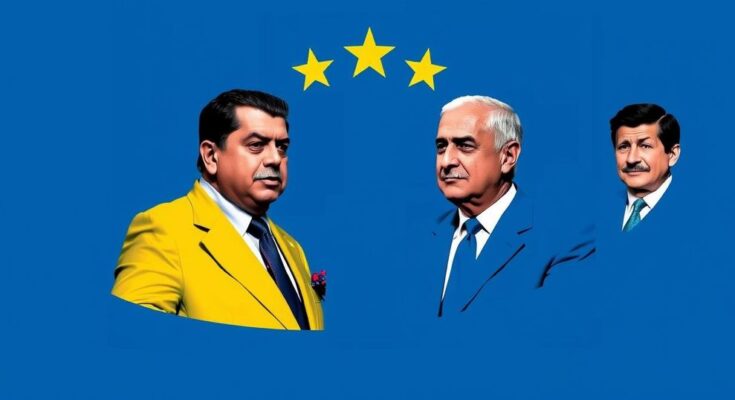The U.S. has sanctioned over 20 Venezuelan officials aligned with Maduro to press for acceptance of the contested July election results. This strategy, intended to foster a democratic transition, targets key military and security personnel and follows the recognition of opposition leader Edmundo Gonzalez as President-elect. The sanctions reflect ongoing U.S. efforts to address political repression in Venezuela amidst an evolving political landscape.
The United States has announced new sanctions targeting over 20 officials aligned with Venezuelan President Nicolas Maduro in an effort to compel him to accept the results of the disputed July presidential election. Senior administration officials indicated that these sanctions, focused on military leadership within the Bolivarian National Guard and Police, aim to encourage a democratic transition in Venezuela by inducing key officials to distance themselves from Maduro’s government. Notable individuals sanctioned include Anibal Coronado, the chief of staff, Freddy Ñañez, the Communications Minister, and Alexis Rodriguez, the director of intelligence services.
Following the formal recognition of Edmundo Gonzalez as President-elect, U.S. Secretary of State Antony Blinken emphasized the importance of respecting the democratic will of the Venezuelan people. He reiterated this sentiment during the G20 summit, underlining that democracy necessitates honoring the voices of voters. Although previous oil sanctions remain effective, there are indications they are under ongoing review by the U.S. administration.
Despite the evolving political landscape, officials acknowledge the predictable transition to a new administration in January, projecting that future policies may be influenced by the incoming leadership. The Biden administration’s current stance prioritizes the advance of democracy in Venezuela and accountability for the existing regime, which has faced sanctions since the emergence of the Venezuelan crisis in 2017. Notably, Maduro himself has been consistently sanctioned since July 2017 and continues to face serious legal challenges from U.S. authorities regarding drug trafficking and terrorism.
Venezuela has faced ongoing political turmoil and economic collapse, leading to widespread protests and international condemnation of Nicolas Maduro’s government. The U.S. has utilized sanctions as a tool to apply pressure on Maduro and promote democratic reforms. The recent round of sanctions comes in light of a disputed election, where Edmundo Gonzalez has been recognized by the U.S. as the legitimate president-elect, despite the Maduro administration’s claims. This situation reflects a broader strategy of U.S. foreign policy aimed at fostering democracy and discouraging authoritarianism in the region.
The U.S. government has intensified its efforts to support democratic processes in Venezuela by imposing targeted sanctions on officials loyal to Maduro. By recognizing Edmundo Gonzalez as the legitimate president-elect, the Biden administration seeks to reinforce democratic principles in the country. The continuation and review of existing sanctions highlight the U.S. commitment to holding accountable those involved in political repression while preparing for potential shifts in policy with an incoming administration.
Original Source: www.cnn.com




